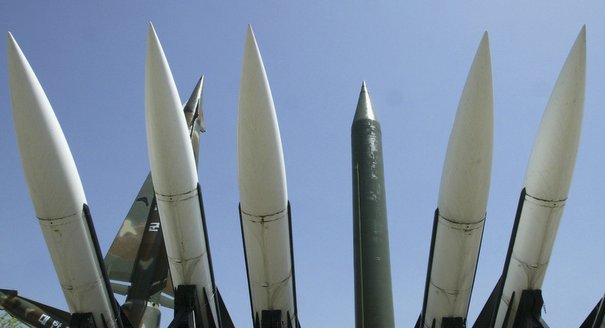Every week leading experts answer a new question from Judy Dempsey on the international challenges shaping Europe's role in the world.
Jonas Parello-Plesnersenior policy fellow at the European Council on Foreign Relations
My gut reaction on this would be to take the moral high ground and say that selling arms goes against the values of peace and conflict mediation that the EU stands for. Yet the more I think about it, the more I see that there are exceptions where selling arms can actually help promote European values.
Take the example of arms sales to an opposition force such as the insurgents against the Assad regime in Syria. Providing them with arms is—for want of better tools—a way of evening the military balance and paving the way for a political transition. Another example is arms sales to the security forces of Afghanistan. They are the very forces that Western troops and trainers have helped to get up and running. Of course, they need weapons to be effective. A similar situation will come about in Mali, where the EU is planning to help train the army. Of course, it will make sense for European countries to provide these forces with arms. But it is a difficult policy tool to fine-tune. Just think of the weapons that Europe sent into Libya to help the uprising against Gaddafi. They now contribute to the destabilization of neighboring countries such as Mali.
To get back to my gut feeling, which still says we should regulate arms sales more strictly: I just had a look at SIPRI’s list of the world’s largest sellers of arms. In 2011, there were seven European countries on the top ten list. Clearly, that means that Europeans sell far more arms than can be justified by political necessities or as a targeted method to sustain our values. Arms sales of this magnitude are big business. In this regard, European countries should recognize the hypocrisy of preaching peace while selling arms.
Germany is a good example of a European country that has no appetite for intervention, due to its history, and sees itself as a mainly geo-economic power. But, Germany still ranks third globally (in 2010) as an arms seller. And Germany isn’t the only country torn between commercial interests and values. Back in 2011, Cameron was caught red handed on a trip to Kuwait when he spoke in the national parliament about democracy while at the same time his delegation included arms dealers. Even Sweden, which people mainly associate with IKEA, Nobel prizes, and female equality, was among the world’s seven largest arms dealers in 2010. So there are many cases where arms sales just follow commercial interests and actually go against European values of conflict reduction and peace promotion. Let’s be honest and admit that.





.jpg)
